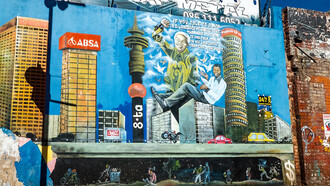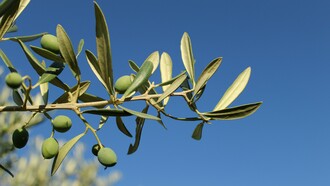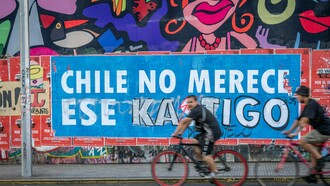Words have power. As symbols, they communicate a sense of relationships, practices, processes, worldviews; they embody meaning and significance; they can incite wars or equally, they can bring about peace.
What I find fascinating is how words change meaning through history. In my 40+ years of environmental and social activism and activist research, I’ve come across so many whose meanings or usage today are not only different, but at times diametrically opposite to how they were used and what they meant originally. But this is not simply an exercise in etymology or a curiosity ride down history lane. As I will try to show below, an understanding of how word meanings have changed or been divorced from their origins, could illustrate how relations of power have changed, and consequently how in many cases bringing back the original meanings may be part of transforming situations of injustice. As one of human language’s most astute observers, Noam Chomsky says in an interview titled When words lose their meaning: “By now every word as used in political discourse has at least two meanings, a literal meaning and its opposite, and it’s the opposite that is normally used”.
I start with an anecdote recounted to me by Satish Kumar, co-founder of Schumacher College and editor of the irreverently progressive journal, Resurgence. On one of his visits to the London School of Economics for a lecture, he asked its Dean whether they had a School of Ecology in the campus. The Dean wondered why they would have such an institution? Whereupon Satishji asked the Dean whether she knew the origin of the words ‘economics’ and ‘ecology’ and was astounded that she did not.
Why should that be astounding? Because both these words originate in the Greek ‘oikos’, meaning home. Now, ecology is the understanding of home, and economics is its management. How can one possibly manage something well if one does not first understand it? And that kind of sums up the devastatingly regressive nature of classical economics, still prevalent in most academic institutions and in the planning agencies of most countries; it promotes the use and management of our planet without any basis of understanding its crucial ecological processes and dynamics, and when there are negative impacts on the latter, it considers these as ‘externalities’. Possibly no other modern discipline (discipline? really?) has done more damage to the earth and humanity. Rather belatedly, radical scholars, student movements, and others are transforming the theories and practice of economics towards respecting ecological flows and limits, as also social imperatives like equality and justice.
Part of this transformation is the recognition, by modern society, of the immense knowledge and wisdom that Indigenous peoples and other local communities have generated over thousands of years of relating to elements of nature around them. This brings me to another heavily abused word: primitive. Over the last five centuries of colonization, western modernity has put the peoples of the world onto a linear scale, where the ’primitive’ is backward, needing to be civilized and brought into the ‘mainstream’. So, well, first of all, the word ‘primitive’ originates in ‘primus’, and simply means ‘the first’. Now, any society based on even a modicum of ethics would give respect to those who came first. And from this, perhaps try to understand that if a community has been around in an area for much longer than has ‘modern man’ (patriarchal distortions of language deserve an independent article!), they may just have a much better sense of how to live in harmony with the land than do those who came more recently. The history of colonization is in fact replete with evidence of how ‘modern’ societies in all continents have a much more terrible record of co-existing with the earth, than those primitive peoples they colonized.
It is not for me to advise Indigenous peoples on how they should treat the names that colonisers have given them, but it seems to me they could proudly embrace the word ‘primitive’ for themselves, and enhance their claim to rights as the people who first settled the land. Indeed, several native peoples in that part of Turtle Island now known as Canada call themselves First Nations. In India, the oldest indigenous peoples (‘adivasis’, meaning original residents) were once called ‘Primitive and Vulnerable Tribal Groups’, but given the pejorative use of ‘primitive’ this was changed to ‘Particularly Vulnerable Tribal Groups’. It need not have been, if only the term could be restored to its original meaning. And perhaps adivasis would have an additional card to wave in front of callous governments and corporations that have been stealing their lands for mining, industries, power stations, tourism resorts, and other so-called ‘development’ projects.
And that’s another word worth digging into. One reason Indigenous peoples and other local communities continue to be dispossessed and displaced in the name of ‘development’ is how its meaning has been distorted by powerful economic forces. Though the origins are not so clear, the word was initially used to mean ‘unfurl’ or ‘unfold’, or to ‘open up’ as opposed to ‘envelop’ (enclose). It was and continues to be used for the process of seeds becoming seedlings to saplings to trees, or the human being from womb to full adult stage. But see what it has predominantly become: a measure of whether a country has a high Gross Domestic Product (GDP)! This has no necessary connection to the well-being and happiness of people or the sustainability of the environment we depend on for our lives; in fact, it has an-all-too-frequent inverse relationship since the higher the GDP growth rate, the more the consumption of materials and energy. Increasing evidence suggests that economic growth on a finite planet is inherently unsustainable. And yet, we continue to perpetuate simplistic and distorted terms like ‘developed’ and ‘developing’; it would be more truthful to call industrialised countries ‘destroyed/destructive’ and those in the process of industrializing, ‘being destroyed’.
Another reason that farmers, forest-dwellers, fishers, pastoralists, craftspersons, and others who live off the land and water, continue to be dispossessed, is ‘democracy’. Or what we have made of this word, which in the original Greek, meant ‘rule (cracy) of the people (demos)’. Across the world the biggest symbol of democracy is elections, which is a bit of a mockery as it tends to put the power that we are all born with into the hands of political representatives, and through them, the bureaucracy, police, army and other organs of the state. But surely democracy should be about each community, rural or urban, being able to exercise its power to take or be part of decisions affecting its life? In India, Gandhi popularized the notion of swaraj, meaning self-rule, an Adivasi community in one of its states says ‘in our village, we are the government’, and Indigenous peoples everywhere have argued for self-determination and autonomy. Not that a community governing itself is necessarily going to be ecologically and socially responsible, but there are greater chances of this since the consequences of not being so are immediately felt by them, and in any case, it should be a basic human right to have a voice in decision-making. Even if we think we need centralized governments (I don’t, but that’s a subject for another day), surely we need radical democracy, empowering every local community, as a base. And bringing nature into the fold, a Radical Ecological Democracy, or eco-swaraj.
Radical. Now that’s yet another severely misused word. These days, society decries ‘radicalised youth’ or ‘fundamentalist forces’ for the inter-religious hostilities and violence we see in many parts of the world. But hey, the term ‘radical’ comes from the Latin radix, meaning ‘root’, and the term ‘fundamental’ comes from the Latin fundare, to found. So, if indeed we were radicalized or fundamentalist, we’d actually be living the ethical and spiritual values all faiths have espoused as their roots or in their founding, including love, solidarity, brother/sisterhood. Or simply, our roots as humans and living beings. It is the distortion of these spiritual, ethical, and biological foundations that leads dogmatic religious leaders and followers to spew hatred and venom. (As an aside, even Chomsky ends up using ‘fundamentalist’ in the interview cited above, in this distorted way!).
Much of our understanding of words like these comes to us when we are growing up, at home and in schools. This brings me to one of my all-time favourites: school. Having been dismayed by the unimaginative, straitjacketed, killjoy atmosphere of schools in India (as I presume in much of the world), I was pleasantly surprised to learn that the word’s origin is skhole, which in one of its Greek meanings was ‘leisure’! For much of human history, kids have learnt while doing things in their communities, or in institutions that mixed the intellectual with the practical, the head with the hands and the heart, the individual identity with the collective spirit. Not that any of this was perfect; often it tended to reproduce relations of inequality or a very inward-looking mindset. But replacing these with soul-deadening schools has created generations of youth whose aims in life are money, fame and power, and who know more about individual selfish behaviour than how to help fellow human beings (let alone fellow species). We need a revolution in education to change this! Ivan Illich called it ‘deschooling society’, a powerful way of putting it; but we could also launch a movement to simply rescue the word ‘school’ and initiate processes of learning that, true to its original meaning, integrate leisure, and encourage creativity, curiosity, and innate talents.
I’ll end with what is one of the words most common word these days: vaccination. This I can’t resist because I also love punning. Ok, so this word comes from vacca, or cow! Apparently, this is because of the early use of the cowpox virus against smallpox. Since then, of course, vaccinations have gone well past the world of cows. But given the blatant vaccination apartheid we’ve seen in the case of Covid-19, with the rich buying off most global supplies and even hoarding vaccines even as the poorer nations/peoples could not access them, what I think we’ve seen is vaccine nationalism in its worst form! (And as an aside, here in India we are seeing vacca-nationalism, using the ‘holy cow’ as a form of religious nationalism to drum up antipathy towards religious minorities and Dalits - Hinduism’s most oppressed ‘outcastes’).
I could go on with many more words, but that’s it for now; to pay homage to cows who are unwitting pawns in both religious and climate politics, I’ll let you get on with your own ruminations.















